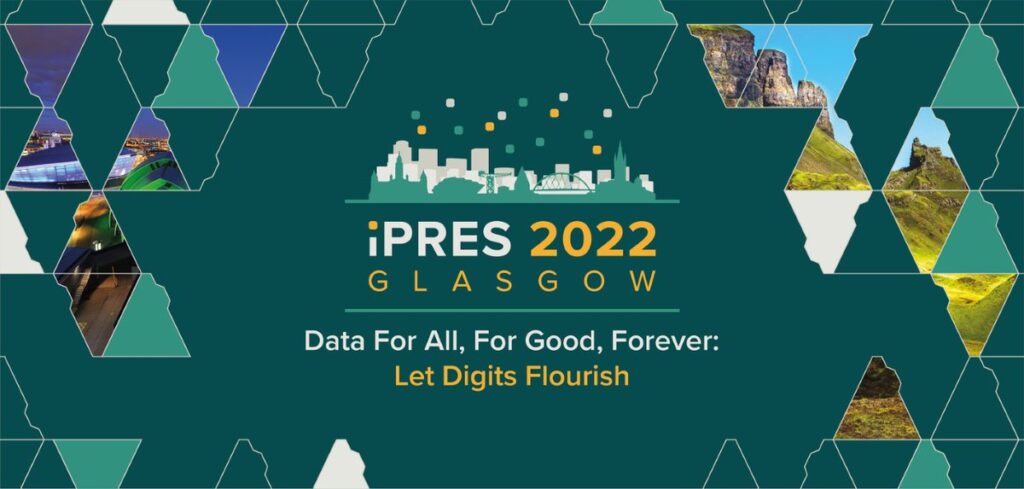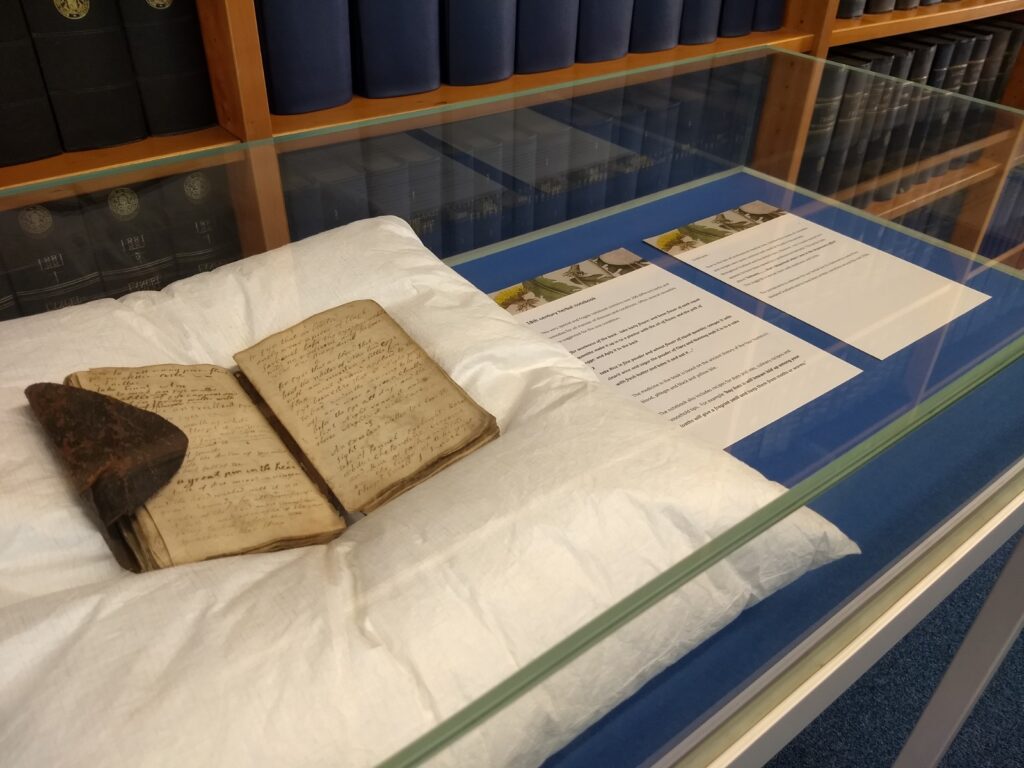
The 18th International Conference on Digital Preservation (iPRES) took place from September 12-16, 2022, in Glasgow, Scotland. First convened in 2004 in Beijing, iPRES has been held on four different continents and aims to embrace “a variety of topics in digital preservation – from strategy to implementation, and from international and regional initiatives to small organisations.” Key values are inclusive dialogue and cooperative goals, which were very much centered in Glasgow thanks to the goodwill of the attendees, the conference code of conduct, and the significant efforts of the remarkable Digital Preservation Coalition (DPC), the iPRES 2022 organizational host.
I attended the conference in my role as the UCSF Industry Documents Library’s managing archivist to gain a better understanding of how other institutions are managing and preserving their rapidly-growing digital collections. For me and for many of the delegates, iPRES 2022 was the first opportunity since the COVID pandemic began to join an in-person conference for professional conversation and exchange. It will come as no surprise to say that gathering together was incredibly valuable and enjoyable (in no small part thanks to the traditional Scottish ceilidh dance which took place at the conference dinner!) The Program Committee also did a fantastic job designing an inclusive online experience for virtual attendees, with livestreamed talks, online social events, and collaborative session notes.
Session themes focused on Community, Environment, Innovation, Resilience, and Exchange. Keynotes were delivered by Amina Shah, the National Librarian of Scotland; Tamar Evangelestia-Dougherty, the inaugural director of the Smithsonian Libraries and Archives; and Steven Gonzalez Monserrate, an ethnographer of data centers and PhD Candidate in the History, Anthropology, Science, Technology & Society (HASTS) program at the Massachusetts Institute of Technology.
Every session I attended was excellent, informative, and thought-provoking. To highlight just a few:
Amina Shah’s keynote “Video Killed the Radio Star: Preserving a Nation’s Memory” (featuring the official 1980 music video by the Buggles!) focused on keeping up with the pace of change at the National Library of Scotland by engaging with new formats, new audiences, and new uses for collections. She noted that “expressing value in a key part of resilience” and that the cultural heritage community needs to talk about “why we’re doing digital preservation, not just how.” This was underscored by her description of our world as a place where the truth is under attack, that capturing the truth and finding a way to present it is crucial, and that it is also crucial that this work be done by people who aren’t trying to make a profit from it.
“Green Goes with Anything: Decreasing Environmental Impact of Digital Libraries at Virginia Tech,” a long paper presented by Alex Kinnaman as part of the wholly excellent Environment 1 session, examined existing digital library practices at Virginia Tech University Libraries, and explored changes in documentation and practice that will foster a more environmentally sustainable collections platform. These changes include choosing the least-energy consumptive hash algorithms (MD4 and MD5) for file fixity checks; choosing cloud storage providers based on their environmental practices; including environmental impact of a digital collection as part of appraisal criteria; and several other practical and actionable recommendations.
The Innovation 2 session included two short papers (by Pierre-yves Burgi, and by Euan Cochrane) and a fascinatingly futuristic panel discussion posing the question “Will DNA Form the Fabric of our Digital Preservation Storage?” (Also special mention to the Resilience 1 session which presented proposed solutions for preserving records of nuclear decommissioning and nuclear waste storage for the very long term – 10,000 years!)
Tamar Evangelestia-Dougherty’s keynote Digital Ties That Bind: Effectively Engaging With Communities For Equitable Digital Preservation Ecosystems was an electric presentation that called unequivocally for centering equity and inclusion within our digital ecosystems, and for recognizing, respecting, and making space for the knowledge and contributions of community archivists. She called out common missteps in digital preservation outreach to communities, and challenged all those listening to “get more people in the room” to include non-white, non-Western perspectives.
“’…provide a lasting legacy for Glasgow and the nation’: Two years of transferring Scottish Cabinet records to National Records of Scotland,” a short paper by Garth Stewart in the Innovation 4 session, touched on a number of challenges very familiar to the UCSF Industry Documents Library team! These included the transfer of a huge volume of recent and potentially sensitive digital documents, in redacted and unredacted form; a need to provide online access as quickly as possible; serving the needs of two major access audiences – the press, and the public; normalizing files to PDF in order to present them online; and dealing with incomplete or missing files.
And so much more, summarized by the final keynote speaker Steven Gonzalez Monserrate after his fantastical storytelling closing talk on the ecological impact of massive terrestrial data centers and what might come after “The Cloud” (underwater data centers? Clay tablets? Living DNA storage?). And, I didn’t even mention the Digital Preservation Bake Off Challenge…
After the conference I also had the opportunity to visit the Archives of the Royal College of Physicians and Surgeons of Glasgow, where our tour group was welcomed by the expert library staff and shown several fascinating items from their collections, including an 18th century Book of Herbal Remedies (which has been digitized for online access).
After five collaborative and collegial days in Glasgow, I’m looking forward to bringing these ideas back to our work with digital archival collections here at UCSF. Many thanks to iPRES, the DPC, the Program Committee, the speakers and presenters, and all the delegates for building this wonderful community for digital preservation!

